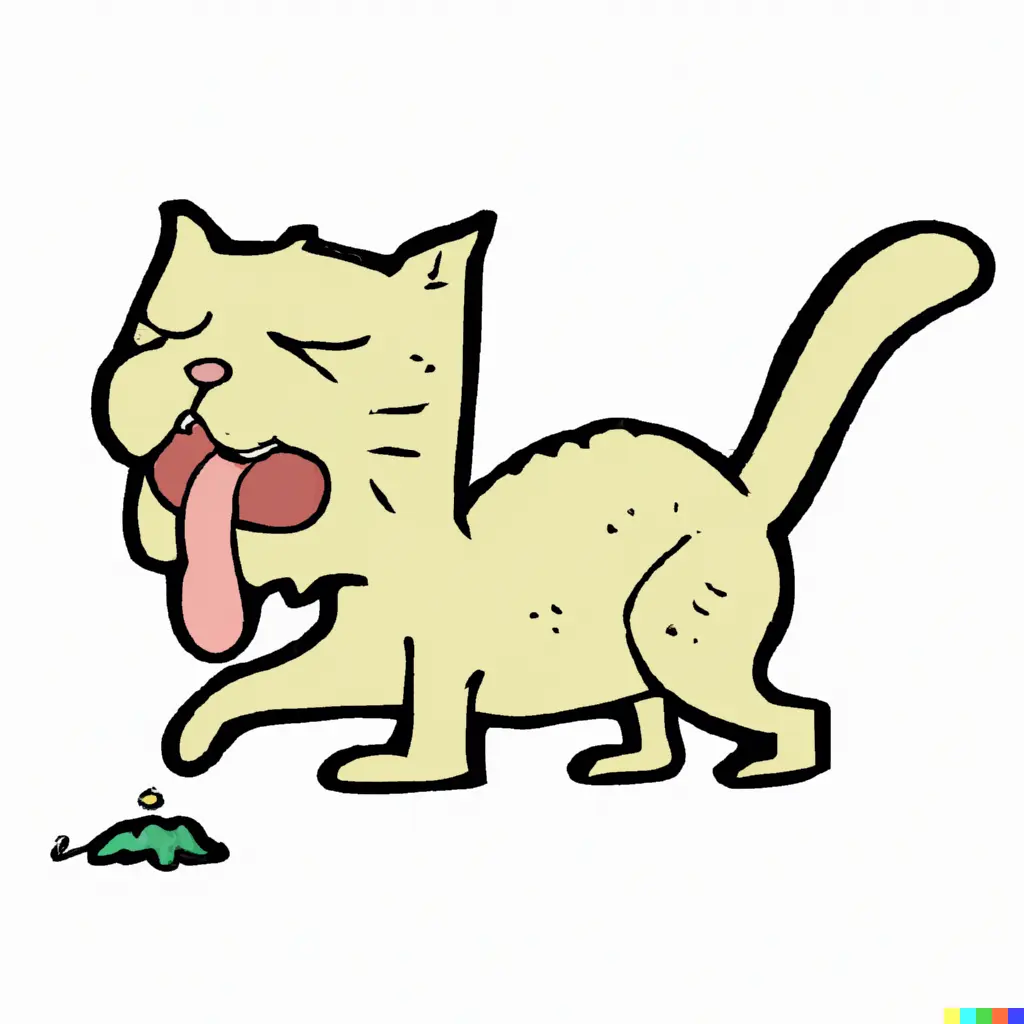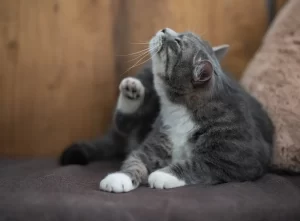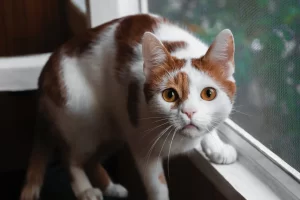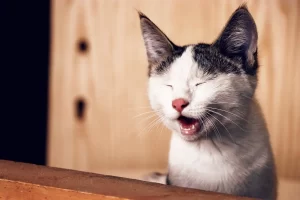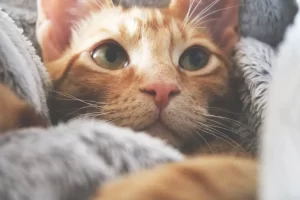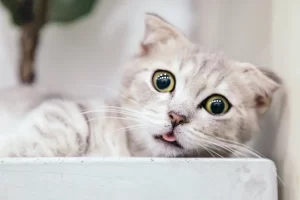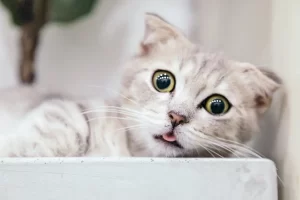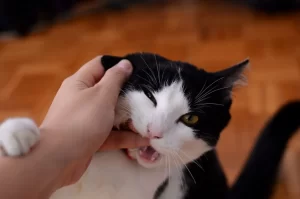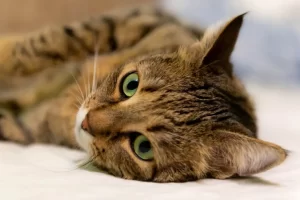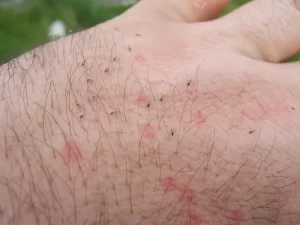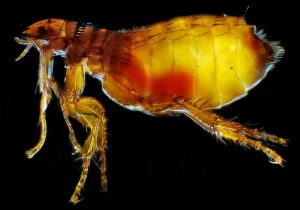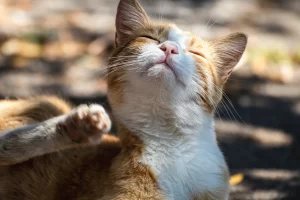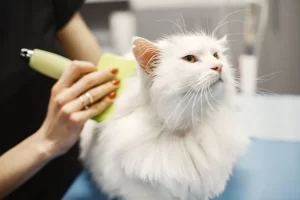Home remedies for cats throwing up bile can be a helpful way to manage and reduce the frequency of this common issue in cats. While bile vomiting may not always be a serious concern, it can be a sign of an underlying medical condition that needs to be addressed. In this article, we will cover various home remedies, including dietary changes, hydration management, and the use of probiotics and digestive enzymes. Additionally, we will discuss medical treatment options, including over-the-counter medicines, and offer tips for preventing future bile vomiting episodes. It is important to note that while home remedies can be helpful in managing bile vomiting, it is essential to seek veterinary care if the vomiting is persistent or accompanied by other symptoms.
Table of Contents
ToggleIntroduction to cat vomiting and bile
Vomiting is a common issue in cats and can be caused by a variety of factors such as digestive problems, dietary changes, and underlying health conditions. Bile is a digestive juice produced in the liver, and its presence in a cat’s vomit may indicate a problem with the digestive system. Bile vomiting can be acute (sudden) or chronic (occurring repeatedly) and can range from a minor inconvenience to a serious health issue, depending on the underlying cause. It is important to observe the frequency, consistency, and contents of a cat’s vomit, and to consult a veterinarian if there are any concerns.
Causes of bile vomiting in cats
Here is a comprehensive list of possible causes of bile vomiting in cats, along with details for each item:
- Hairballs: Cats groom themselves frequently, which can result in hairballs that build up in their digestive systems. These can cause bile vomiting.
- Diet: Poor-quality or low-nutrient diets, changes in food, or eating too quickly can cause digestive upset and lead to bile vomiting.
- Overeating: Eating too much food can put pressure on the stomach and cause bile to be expelled.
- Inflammatory Bowel Disease (IBD): Inflammation in the gastrointestinal tract can lead to bile vomiting.
- Gastrointestinal blockage: Objects such as bones, toys, or strings can get stuck in the digestive tract and cause bile vomiting.
- Liver disease: A diseased liver, such as fatty liver disease, can cause bile to back up into the stomach, leading to vomiting.
- Pancreatitis: Inflammation of the pancreas can lead to bile vomiting. Here is how you may be able to treat pancreatitis at home.
- Intestinal parasites: Parasites can cause digestive upset and result in bile vomiting.
- Kidney disease: Kidney failure can cause a buildup of toxins in the body, leading to bile vomiting.
- Motion sickness: Cats may experience motion sickness, leading to bile vomiting.
- Anxiety or stress: Emotional stress can cause digestive issues and lead to bile vomiting. For a full list of natural remedies that can help cats with anxiety, click here.
- Cancer: Tumors in the digestive tract can cause bile vomiting. Homeopathic cancer treatments can help your cat deal with cancer better.
- Medications: Certain medications can cause digestive upset and result in bile vomiting.
- Dehydration: Not drinking enough water can cause digestive problems and lead to bile vomiting.
- Hormonal imbalances: Hormonal imbalances can cause digestive issues and result in bile vomiting.
- Food intolerance: Some cats may be intolerant to certain foods, leading to bile vomiting.
It is important to note that some of these causes may require veterinary treatment, and bile vomiting can be a symptom of a more serious underlying condition.
Importance of prompt veterinary treatment
Prompt veterinary treatment is important for several reasons in cases of cat vomiting bile:
- Diagnosis: A veterinarian can help diagnose the underlying cause of bile vomiting, which may range from a minor digestive issue to a serious health problem.
- Prevention of dehydration: Persistent vomiting can cause dehydration, which can have serious consequences for a cat’s health. A veterinarian can provide treatment to prevent or manage dehydration.
- Treatment of underlying conditions: If the bile vomiting is caused by an underlying health issue, prompt veterinary treatment is crucial for the cat’s recovery and well-being.
- Monitoring of symptoms: A veterinarian can monitor the cat’s symptoms and adjust treatment as necessary to ensure that the condition is effectively managed.
- Prevention of complications: Prompt veterinary treatment can prevent the development of more serious health issues, such as liver or kidney problems.
In conclusion, if your cat is vomiting bile, it is important to seek veterinary treatment as soon as possible to ensure prompt and effective management of the condition. Read more on How often do you take a cat to the vet?
Home remedies for cat throwing up bile
Here are the main home remedies for cat vomiting bile, along with details, benefits, and usage instructions for each:
- Hydration: Encourage your cat to drink water to prevent dehydration and promote digestive health. Offer water in a bowl or use a water fountain to make it more appealing.
- Diet changes: Offer smaller, more frequent meals and switch to a high-quality, easily digestible diet. Avoid giving your cat table scraps or fatty foods.
- Ginger: Ginger can help settle a cat’s stomach and reduce vomiting. Offer a small amount of freshly grated ginger mixed into your cat’s food or as a treat.
- Probiotics: Probiotics can help support digestive health and reduce vomiting. Offer a probiotic supplement recommended by your veterinarian.
- Digestive enzymes: Digestive enzymes can help break down food and reduce vomiting. Offer a digestive enzyme supplement recommended by your veterinarian.
- Hairball prevention: Groom your cat regularly to reduce the amount of hair they ingest, and offer hairball prevention treats or gel.
- Over-the-counter antacids: Over-the-counter antacids can help neutralize stomach acid and reduce vomiting. Offer a small amount of antacid recommended by your veterinarian.
- Slippery Elm: Slippery elm is a natural supplement that can help soothe the digestive tract and reduce vomiting. Offer a small amount mixed into your cat’s food or as a treat.
- Aloe Vera: Aloe vera can help soothe the digestive tract and reduce vomiting. Offer a small amount of pure aloe vera juice mixed into your cat’s food or as a treat.
- Essential oils: Essential oils such as peppermint or ginger can help settle a cat’s stomach and reduce vomiting. Dilute a small amount in a carrier oil and offer as a treat or mix into your cat’s food.
- Home-cooked meals: Offer a home-cooked meal made with easily digestible ingredients, such as boiled chicken and rice.
- Avoiding trigger foods: Observe your cat’s reaction to different foods and avoid those that seem to trigger vomiting.
- Monitoring food intake: Keep track of your cat’s food intake and changes in appetite to identify any potential digestive issues.
- Reducing stress: Reduce stress in your cat’s environment to prevent digestive upset and vomiting.
- Providing a safe and comfortable environment: Ensure your cat has a safe, comfortable place to rest and access to fresh water and food.
- Regular exercise: Encourage your cat to be physically active through play and exercise to support digestive health.
- Regular grooming: Groom your cat regularly to remove loose hair and prevent hairballs.
- Avoiding sudden changes: Gradually introduce any changes to your cat’s diet or routine to prevent digestive upset and vomiting.
- Consult with a veterinarian: Regularly consult with a veterinarian to monitor your cat’s health and address any concerns.
- Monitoring symptoms: Observe your cat’s symptoms and seek veterinary treatment if vomiting persists or worsens.
It is important to note that these remedies are not a substitute for veterinary treatment and should be used in consultation with a veterinarian. Some underlying conditions may require medical intervention, and some remedies may not be suitable for all cats.
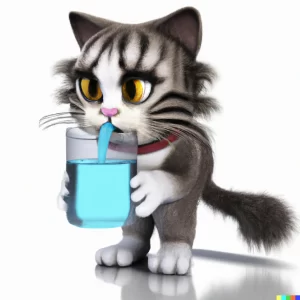
The role of hydration in reducing bile vomiting
Hydration is an important factor in reducing bile vomiting in cats. Here are some steps you can take to ensure your cat is well-hydrated:
- Provide access to fresh water: Make sure your cat always has access to clean, fresh water. Keep multiple water bowls in different locations around the house.
- Offer wet food: Wet food contains more water than dry food and can help improve hydration. Offer a balanced diet that includes both wet and dry food.
- Encourage drinking: Provide interactive water fountains or add flavor to water to encourage drinking.
- Monitor water intake: Keep track of how much water your cat is drinking and notify your veterinarian if there is a significant decrease.
- Talk to your vet: If your cat is dehydrated or has chronic vomiting, talk to your veterinarian about additional treatment options, such as fluid therapy.
Adequate hydration can help improve digestive function and reduce the risk of bile vomiting in cats.
Ways to reduce stress
Cats are sensitive creatures and can be easily stressed by changes in their environment, such as moving to a new home, the introduction of a new pet or family member, or even simply rearranging the furniture. Stress can be a contributing factor in bile vomiting in cats and reducing stress can help to prevent or reduce the frequency of vomiting episodes.
Ways to reduce stress in cats include:
- Providing a stable, comfortable living environment.
- Maintaining a consistent routine and feeding schedule.
- Providing hiding places and elevated perches for the cat to retreat to.
- Offering interactive toys, scratching posts, and other forms of enrichment.
- Spending quality time with your cat and providing attention and affection.
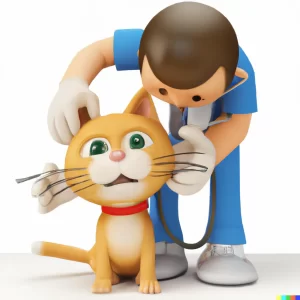
Medical Treatments and medicines for cats vomiting bile
There are several medical treatment options for cats that are experiencing bile vomiting. Some of these options include:
Medicines:
- Antacids: Antacids, such as famotidine or ranitidine, can help neutralize stomach acid and reduce bile vomiting.
- Prokinetics: Prokinetics, such as metoclopramide, can help improve the motility of the intestines and reduce bile vomiting.
- Anti-emetics: Anti-emetics, such as ondansetron, can help reduce nausea and vomiting.
Over-the-Counter (OTC) Medications:
- Pepcid AC (famotidine): An OTC antacid that can help neutralize stomach acid and reduce bile vomiting.
- Kaopectate (bismuth subsalicylate): An OTC antidiarrheal and antacid medication that can help reduce bile vomiting.
It is important to note that not all medications are safe or effective for all cats, and some medications may interact with other medications your cat is taking. Always talk to your veterinarian before giving your cat any medication or starting any new treatment.
Prevention of future bile vomiting
Here are some steps you can take to help prevent future bile vomiting episodes in your cat:
- Maintain a balanced diet: Offer a balanced diet that includes both wet and dry food to ensure your cat is getting all the necessary nutrients.
- Limit table scraps: Table scraps can disrupt the balance of nutrients in your cat’s diet and can contribute to digestive problems, including bile vomiting.
- Encourage hydration: Provide access to fresh water and offer wet food to encourage hydration.
- Reduce stress: Chronic stress can contribute to digestive problems, including bile vomiting. Create a calm, stress-free environment for your cat and provide them with plenty of love and attention.
- Regular vet check-ups: Regular vet check-ups can help identify and address any potential health problems before they become more serious.
By following these steps, you can help reduce the risk of future bile vomiting episodes in your cat and keep them healthy and happy.
Possible medical interventions for chronic bile vomiting
In some cases, cats may experience chronic bile vomiting that does not respond to simple home remedies or dietary changes. In these cases, additional medical interventions may be necessary. Some of these interventions include:
- Endoscopy: An endoscopy is a diagnostic procedure that allows your veterinarian to examine the inside of your cat’s digestive tract using a camera. This can help identify any underlying issues that may be contributing to chronic bile vomiting.
- Biopsy: A biopsy involves taking a small sample of tissue from your cat’s digestive tract for laboratory analysis. This can help identify any underlying medical conditions, such as inflammatory bowel disease or cancer, that may be causing chronic bile vomiting.
- Surgery: In some cases, surgery may be necessary to remove a blockage or correct a structural issue in your cat’s digestive tract.
- Medications: Your veterinarian may prescribe medications, such as antibiotics or anti-inflammatory drugs, to treat any underlying medical conditions that may be contributing to chronic bile vomiting.
Potential complications if left untreated
If bile vomiting is left untreated, it can lead to several potential complications, including:
- Dehydration: Chronic vomiting can lead to dehydration, which can have serious consequences for your cat’s overall health and well-being.
- Electrolyte imbalances: Electrolyte imbalances, such as low potassium levels, can occur as a result of bile vomiting and can be dangerous if left untreated.
- Malnutrition: Chronic vomiting can lead to malnutrition if your cat is not able to properly absorb and retain nutrients from their food.
- Blockages: Bile can harden and form blockages in the intestines, which can cause pain, discomfort, and additional vomiting.
- Liver and Pancreatic Issues: Bile vomiting can be a symptom of underlying liver or pancreatic problems, which can be serious and life-threatening if left untreated. You can read more about liver disease in cats here.
Which vet to visit with what expertise?
Which Vet to Visit with What Expertise: If your cat is experiencing bile vomiting, it is important to seek prompt veterinary care. Here are some different types of veterinarians you may want to consider visiting based on your cat’s specific needs:
- General Practitioner (GP) Veterinarian: A GP veterinarian can perform a basic physical examination and provide treatment for simple cases of bile vomiting. They can also provide referrals to specialists if necessary.
- Internal Medicine Specialist: An internal medicine specialist is a veterinarian who specializes in the diagnosis and treatment of diseases affecting the internal organs. They may be a good option if your cat is experiencing chronic or complex bile vomiting, or if underlying medical conditions are suspected.
- Gastroenterologist: A gastroenterologist is a veterinarian who specializes in the diagnosis and treatment of digestive disorders. They may be a good option if your cat is experiencing chronic or complex bile vomiting, or if digestive issues are suspected as the underlying cause.
- Surgeon: A surgeon is a veterinarian who specializes in surgical procedures. They may be a good option if your cat is experiencing blockages or other structural issues in their digestive tract.
Does Bile Vomiting in Cats Vary Based on Breed, Age, or Gender?
In most cases, bile vomiting does not vary based on a cat’s breed, age, or gender. However, certain breeds of cats may be predisposed to certain medical conditions that can increase their risk of bile vomiting. For example, Persian cats may be predisposed to the liver and biliary tract disease.
With respect to age, younger cats are less likely to experience chronic bile vomiting compared to older cats, who may be more susceptible to age-related health problems that can lead to bile vomiting.
Gender does not typically play a significant role in bile vomiting. However, female cats may be more susceptible to certain medical conditions, such as liver and biliary tract disease, that can increase their risk of bile vomiting.
vomiting bile vs vomiting blood
Bile Vomiting: Bile is a digestive juice produced by the liver that helps to break down fats in the small intestine. When a cat vomits bile, it may be due to an empty stomach, which causes the digestive system to produce more bile than is needed. Bile is yellow or green in color and has a bitter taste.
Vomiting Blood: Vomiting blood, also known as hematemesis, occurs when there is bleeding in the upper digestive tract. Blood from the upper digestive tract will appear bright red, while blood from the lower digestive tract will appear darker and tar-like.
The presence of blood in vomit is a serious condition and requires prompt veterinary care. Causes of vomiting blood can include injury, infection, inflammation, tumors, foreign objects, and certain medical conditions.
References:
- Huvé R, O’Toole E, Gara-Boivin C, Fontaine P, Bélanger MC. Bile composition of healthy cats and cats with suspected hepatobiliary disease using point-of-care analyzers: A prospective preliminary study. Can J Vet Res. 2020 Apr;84(2):138-145. PMID: 32255909; PMCID: PMC7088509.
- Muir P, Gruffydd-Jones TJ, Harbour DA. A preliminary assessment of post prandial unconjugated bile acids in serum of cats with chronic diarrhoea and vomiting. Vet Rec. 1992 Feb 8;130(6):119-21. doi: 10.1136/vr.130.6.119. PMID: 1561744.Cat vomiting, Cornell feline health center

